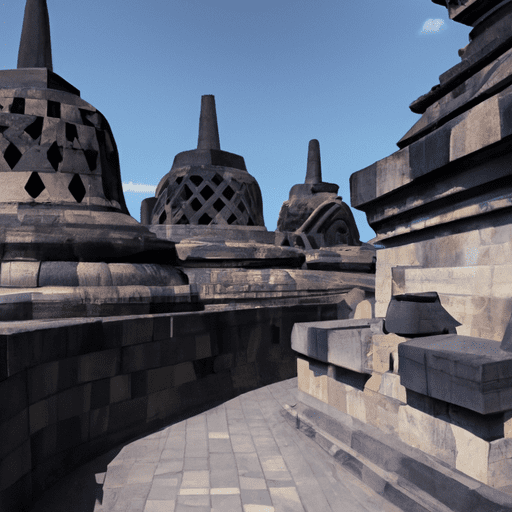Borobudur Temple is a UNESCO World Heritage Site located in Central Java, Indonesia. It is the world’s largest Buddhist temple, consisting of nine stacked platforms, six square and three circular, topped by a central dome. Borobudur Temple is considered one of the greatest Buddhist monuments in the world and attracts millions of visitors every year.
Recently, the government of Indonesia made changes to the entrance fee policy of Borobudur Temple. The new policy aims to encourage tourists to visit the temple during weekdays and to preserve the heritage site’s cultural and historical significance.
Under the new policy, visitors will have to pay different entrance fees depending on when they visit. The highest fee will be charged on weekends and public holidays, while a lower fee will be charged on weekdays. The new policy will also introduce a different fee for foreign tourists.
This move by the Indonesian government is a step towards promoting sustainable tourism and balancing the number of tourists that visit the temple. It is hoped that by charging different fees for different days, the demand for Borobudur Temple will be spread out more evenly, reducing overcrowding and congestion, thereby preserving the site’s heritage.
Furthermore, the revenue generated from the entrance fee will also be used for the maintenance of the site. The funds will be allocated towards ensuring the temple remains in good condition, providing essential services to visitors, and improving security measures.
Visitors have mixed feelings about the new policy, with some agreeing that it is a sensible approach to preserving the temple’s heritage and others expressing concerns about the increased cost of visiting on weekends and public holidays. However, the new policy is set to be implemented, and visitors are encouraged to plan their visit accordingly.
In conclusion, Borobudur Temple is an incredible temple and a must-visit destination for those traveling to Indonesia. While the new entrance fee policy may come as a surprise, it is essential to preserve the site’s cultural and historical significance for generations to come. The Indonesian government’s move is a step towards promoting sustainable tourism, and visitors should respect this change.

